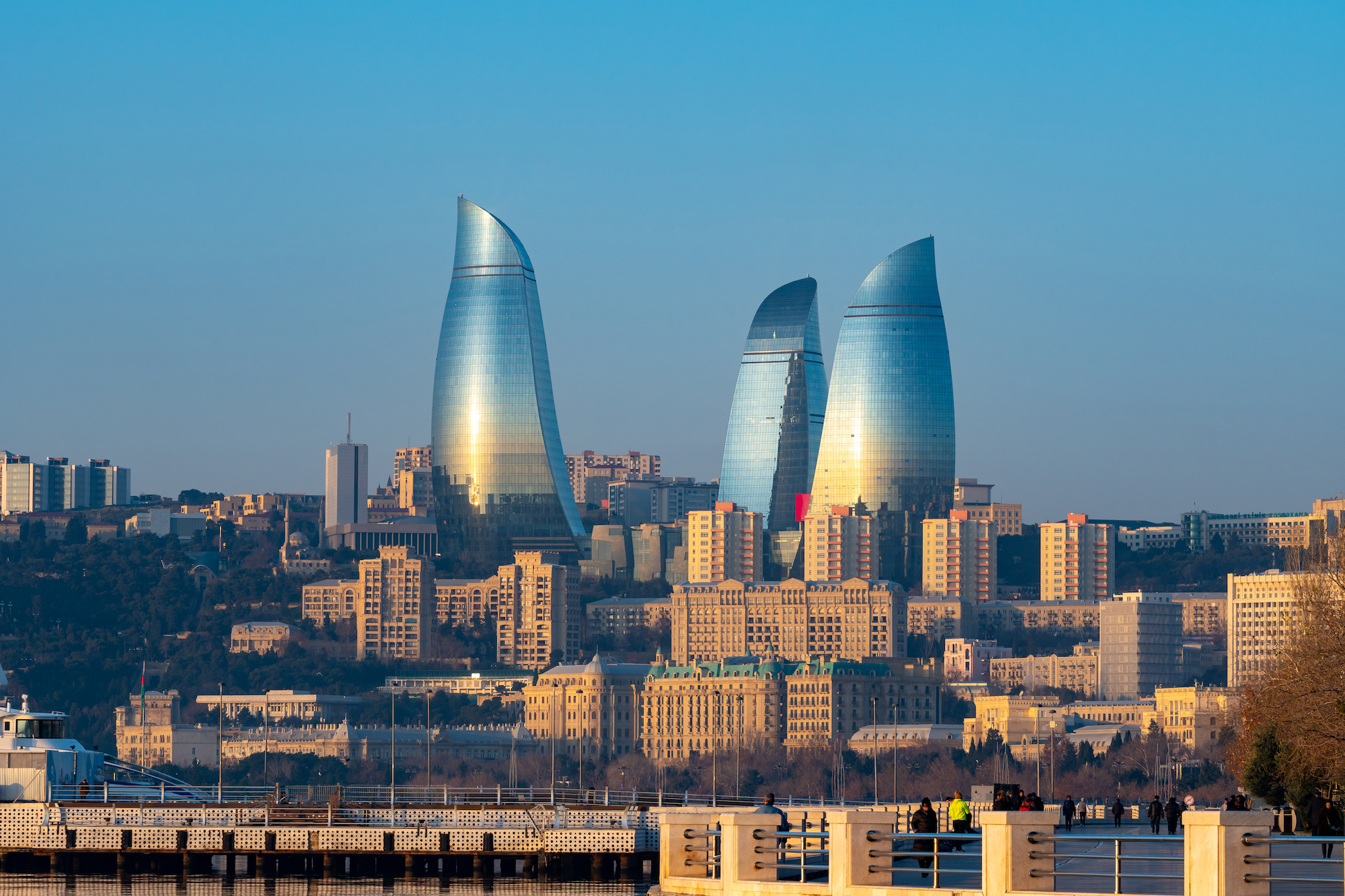Climate change needs everyone's attention. Here's what the Blavatnik School did in 2024.
Billions felt the direct effects of a warming planet during the year. Inside the School, work on climate continued to grow.

2024 broke global summer heat records, as 2023 had before it. Billions felt the direct impact of climate change in their day-to-day lives, whether through heat, rain, or the multitude of knock-on impacts, from cancelled trains right through to large-scale crop failure.
Governments and societies face an immense challenge: to limit and halt emissions to prevent further (catastrophic) warming, at the same time as adapting to the change already wrought. Meanwhile, they are buffeted by immediate urgent issues like conflict, migration, economic woes, and energy shortages – all of which divert short-term attention from climate change, but have been (and will be) worsened by it.
No wonder, then, that climate change was a major focus for many in the Blavatnik School community during 2024, with our faculty, researchers, students, alumni and wider community showing drive and optimism.
Much of our work clustered around two key moments on the global calendar: the UN General Assembly in September and COP29 in November.
UN General Assembly
At the UN General Assembly in September 2024, a Pact for the Future was adopted by member states, pledging action towards an improved world for tomorrow’s generations – a vision in which halting and adapting to climate change plays an obvious role.
Professor Thomas Hale contributed to a key part of the pact called the Declaration on Future Generations, which aims to safeguard the rights and interests of those not yet born. He and colleagues had published a policy brief back in January 2023 scoping out what such a Declaration could look like, which they followed up with two May 2024 policy briefs, one outlining what implementing a Declaration on Future Generations could mean in practice by identifying tools from around the world, and another outlining how specific UN instruments could operate.
Tom's thinking in this area is the product of many years examining how we can manage transnational problems in general, and climate change in particular. His book Long Problems: Climate Change and the Challenge of Governing Across Time, published in April 2024, shows how governments can address generation-spanning issues. He discussed this and the UN Declaration in an article for the New Scientist in September 2024.
COP29
The second major global moment was COP29 in Baku (pictured), Azerbaijan, in November 2024. Rachel Kyte, Professor of Practice in the Blavantik School, played a key role as the UK government's climate envoy, while Tom Hale led the delegation of Oxford University researchers. Many other members of the Blavatnik School community were also in attendance. Some of them, including well-known Ugandan climate activist Vanessa Nakate, who is currently studying for our MPP, reflected afterwards on next steps for the world in an online event.
Also at COP29, the UN's Taskforce on Net Zero Policy – to which Tom Hale had been appointed expert advisor in June 2024 – launched its two major reports. One of them is based on data from the Climate Policy Monitor, and its precursor the Net Zero Regulation Stocktake, both of which Tom co-leads.
The Climate Policy Monitor will be an important tool in the climate fight, providing a detailed view of how key economic rules across major countries align – or not – to climate goals, against which governments and other jurisdictions can be scrutinised. It is part of the Net Zero Regulation and Policy Hub, a cross-Oxford collaboration co-led from the Blavatnik School. Earlier work by the team released in April 2024 had shown that net zero targets set by countries, regions and companies were growing, but gaps remained. Moreover, as the researchers argued in Nature Climate Change, targets alone only go so far. The Climate Policy Monitor tracks the emergence of legally enforceable rules, showing an explosion over the last year, but laying bare continuing gaps.
Other climate work
Intellectual rigour beats instinct when it comes to saving the planet, as Professor Karthik Ramanna had illustrated back in 2023 in his Harvard Business Review article about why recycled materials don't always generate greener products. It's one of many insights from a carbon accounting method he developed called E-Liability, which can tell companies and consumers the total greenhouse gas emissions of any product or service, from raw materials to delivery. In October 2024 Karthik published an account in the Harvard Business Review of how a boutique security-services firm piloted the E-Liability method, and discovered that the food they gave their staff in Afghanistan, despite being locally sourced, generated more emissions than their transport.
Rigorous and globally recognised standards in carbon accounting and other areas are crucial for a global push on climate, and in 2024 Karthik also outlined guidance for organisations involved in setting these standards, and helped bring together some of the world's top central banks for a conference on robust carbon measurements.
Our Lemann Foundation Programme's report on G20 health systems, presented at the G20 health group meeting in Brazil in September 2024, explores among other things the interplay between healthcare resilience and climate change. The team was able to promote equity considerations in healthcare, especially in relation to regions that are most vulnerable to the impacts of climate crises.
The Blavatnik School continued to be an official nominator for the Earthshot Prize, which searches the globe for game-changing innovations that will help us repair our planet, awarding the best five solutions each year £1 million to scale up.
Our many climate-focused events during 2024 included a firsthand account of the high-stakes negotiations that led to the 2015 Paris Agreement; a discussion of how various elections in 2024 will affect climate policy; a book talk on climate capitalism arguing the green economy is both possible and profitable; a discussion of how the warming climate is already changing our bodies and brains; and former Colombian president Iván Duque's launch of a green manifesto for Latin America and the Caribbean. All can be rewatched on our YouTube channel.
Finally, many of our exceptional students are focussed on climate, and have already made a major difference prior to joining us. They want to use their time at the School to rocket-fuel their impact, and in a handy 2024 blog, student Steph Barker summed up how to weave a climate-focussed path through the MPP.
For me and the rest of the communications team, the year was, as ever, a race to try and capture even a glimpse of what our ever-growing community is achieving. In 2024 we launched pages that group content on the website by topic - so if you've read this far, bookmark our climate and environment topic page to stay up to date on the School's climate work in 2025.

